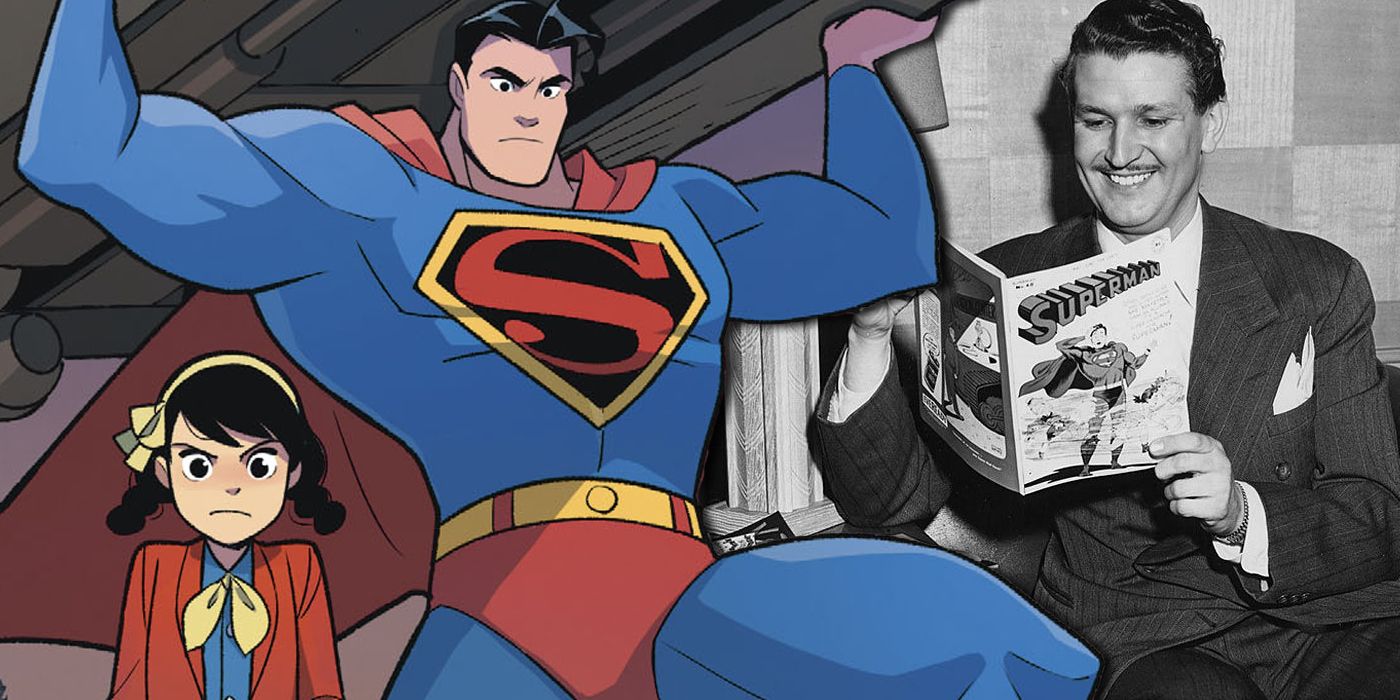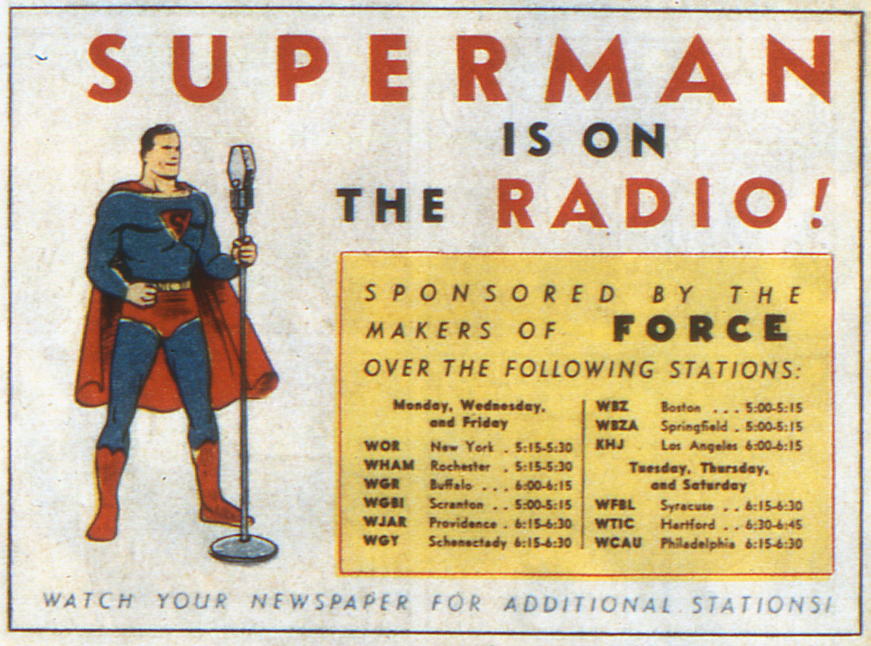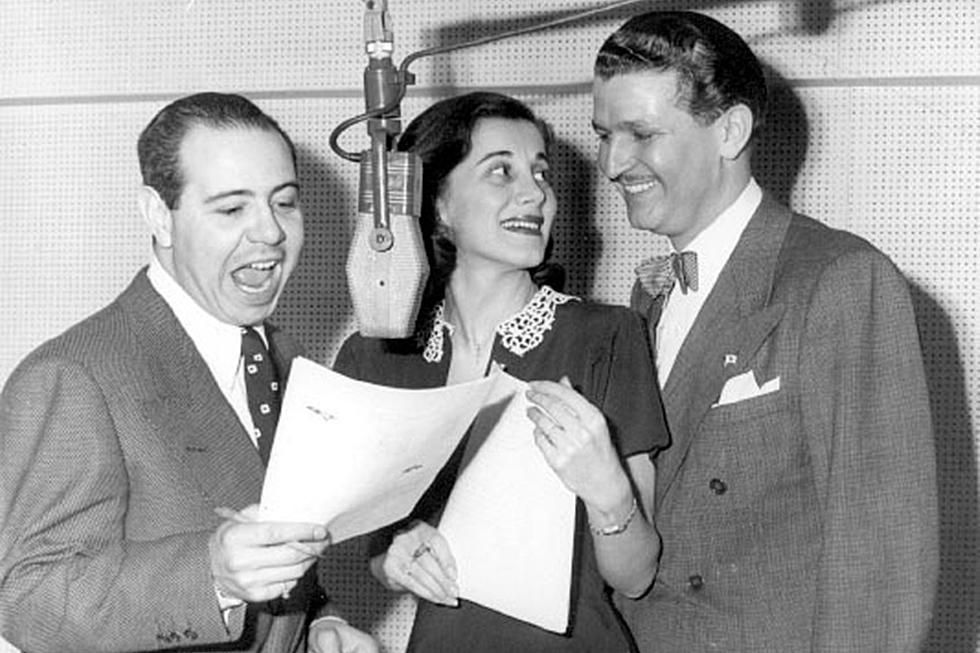The Superman miniseries, Superman Smashes the Klan by Gene Luen Yang and Gurihiru, is a period-piece story that sees the Man of Steel defending a Chinese-American family after they are targeted by a resurgent Klan of the Fiery Cross when the bigoted, extremist group makes its way to Metropolis.
While its an effective look at the flagship DC Comics superhero stopping the Klan during a time when the organization was at its height, the story actually has a surprising real-world history behind it that actually saw the character take a stand against the Ku Klux Klan decades ago in the real world in one of the character's most positive lasting legacies.
Shortly after he was created by Jerry Siegel and Joe Schuster in Action Comics #1 in 1938, Superman was already a bonafide national phenomena. National Comics -- the comic publisher that would eventually evolve into DC -- had already licensed the character to a newspaper comic strip, and the young Man of Steel began appearing in The Adventures of Superman radio serials in February 1940, with the Man of Steel voiced by actor Bud Collyer.
Sponsored by the cereal giant Kellogg's, the radio show was an enormous success and was so tied to Superman's foundational years that major elements, including Jimmy Olsen, Perry White and Superman's weakness to kryptonite would be incorporated into the comic book mythos after first being introduced on the radio show.
Airing three days a week without repeat episodes, the popular radio show included social messages promoting listeners to support the American war effort during World War II, shifting to messages of religious and racial tolerance after the war's end years later. This social conscious push and rise in the series' popularity coincided with a resurgent Ku Klux Klan forming around the country. By 1946, human rights activist Stetson Kennedy noticed and decided to use the radio show as a platform to expose and demystify the Klan's practices once and for all.
Unable to serve in World War II due to recurring medical issues, Kennedy decided instead to combat the threat at home by infiltrating a Georgia-based branch of the Klan under the pseudonym John Perkins. Suspicious that the Klan's influence stretched as far up as the government and local law enforcement officials, Kennedy approached the producers of The Adventures of Superman with his findings and a pitch a story that pitted the Man of Tomorrow against a thinly veiled analogue organization that referred to itself as the Clan of the Fiery Cross, which targeted immigrants and minorities in Metropolis.
With the Axis Powers defeated, the producers had been looking for a new overarching antagonist for Superman to face off against and agreed to Kennedy's pitch, incorporating his actual findings towards crafting the story.
In a 16-part story arc, Superman faced off against the Clan of the Fiery Cross after the Chinese-American Lee family are targeted by the organization. The family's son, Tommy, is nearly killed by a bombing as he rises through the ranks of local, amateur baseball clubs in Metropolis, while his father Wan is a renowned scientist working as a bacteriologist in the city.
The Clan, which is led by a hooded figure referring to himself as the Grand Scorpion, attacks the Lee family, as Superman works to expose and dismantle the Clan both through his superhero activities and in his civilian job as investigative reporter Clark Kent. In retaliation for The Daily Planet's coverage of the Clan's illicit workings, Perry White and Jimmy Olsen are also targeted by the group, with Superman managing to save them all and bring down the Clan for good.
Using Kennedy's research, the producers and writers for The Adventures of Superman reportedly incorporated code words and other secretive details behind the Ku Klux Klan over the course of the story, exposing the hate group's practices to the general public. Incensed, the Klan threatened to boycott Kellogg's products for its continued sponsorship of the radio show, but the company maintained its support for the series while listenership continued to thrive and led the producers to promote further racial and religious tolerance stories in the years that followed.
Coupled with Kennedy taking his findings to the authorities leading to several high-profile convictions, recruitment in the Klan began to steadily plummet, leading the organization becoming a shadow of its former self by 1948.
Yang and Gurihiru's story loosely adapts the radio show, maintaining much of the context and period setting while modernizing the tone and content for modern readers. For a character that touts the virtues of truth, justice and the American Way -- a phrase that appeared on the radio show first -- Superman has faced timely threats to the country ever since his inception over 80 years ago. With Superman Smashes the Klan, the creative team has crafted a modern retelling of the landmark radio story that placed the Man of Steel at the forefront of contemporary social issues reminding fans what the superhero truly stands for.
Superman Smashes the Klan #1 is written by Gene Luen Yang and illustrated by Gurihiru. It is on sale October 16 from DC Comics.



